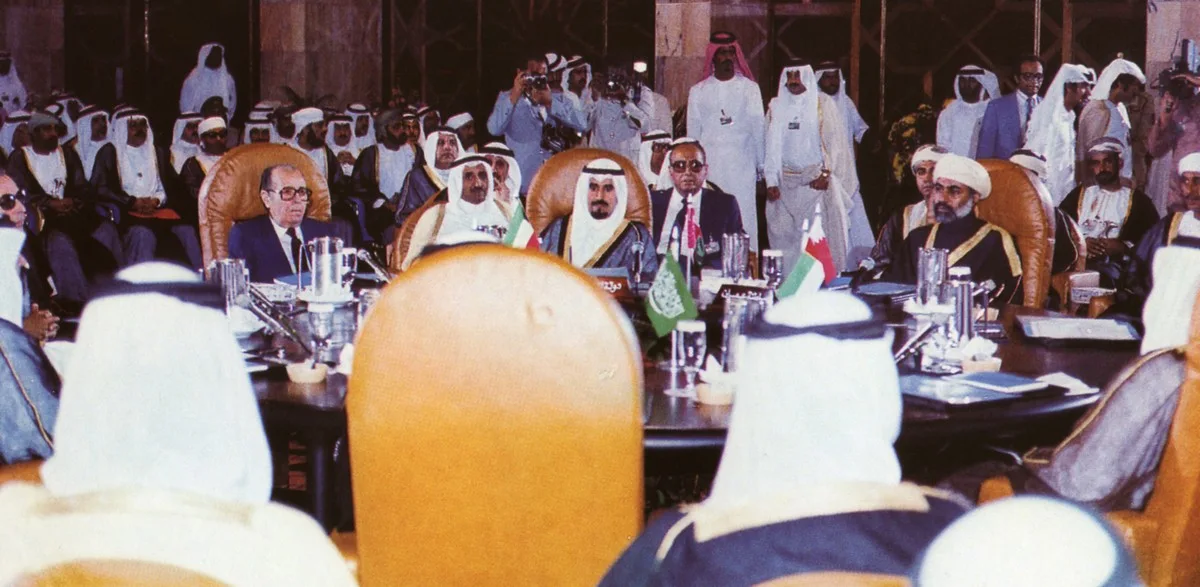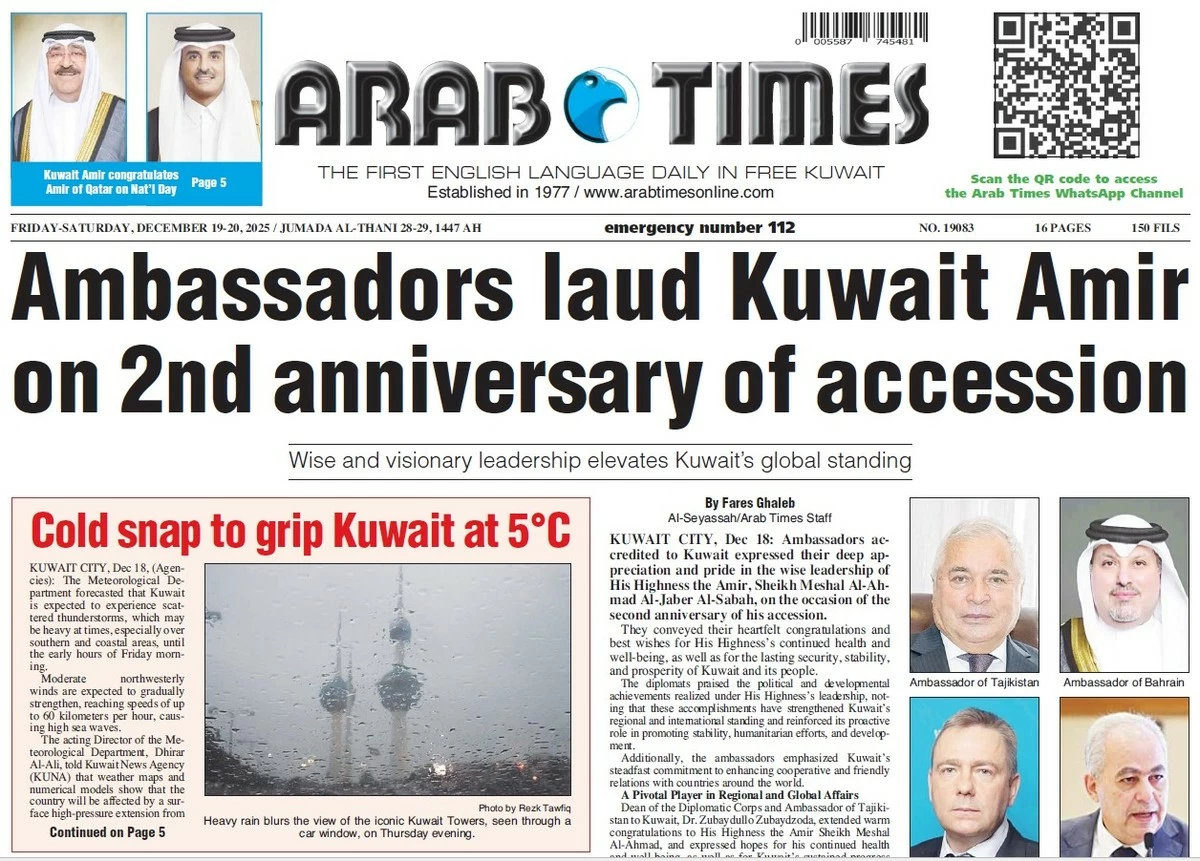28/11/2024
28/11/2024

KUWAIT CITY, Nov 28: As the 45th Gulf Summit approaches, to be hosted by Kuwait next Sunday, we reflect on the remarkable 43-year journey of the Gulf Cooperation Council (GCC), which has seen significant accomplishments across various fields. These achievements have benefited the Gulf citizens and fulfilled the aspirations of its leaders and nations, transforming the GCC into a model of successful regional systems both regionally and internationally.
Since the first Gulf Summit was held in Abu Dhabi on May 25, 1981, when the establishment of the GCC was announced, the successive summit meetings over the past four decades have strengthened cooperation and coordination among the six member countries. These efforts have helped the GCC keep pace with global developments and facilitated the exchange of valuable expertise and experiences. This collaboration has formed a major pillar for achieving the Council's objectives.
Over the years, Gulf integration has played a key role in realizing the GCC’s vision of promoting the stability, economic prosperity, and social well-being of its member states. It has also strengthened the fraternal ties between their peoples. The GCC’s efforts have resulted in numerous achievements, projects, initiatives, agreements, and memoranda of understanding in diverse fields.
One of the most notable accomplishments of the GCC has been its ability to formulate unified positions on political issues that affect member countries within the Arab, regional, and international frameworks. The GCC has consistently presented a unified front to the world, adhering to principles of mutual respect, non-interference in internal affairs, and prioritizing common interests. This approach has served to safeguard the security, stability, and prosperity of the GCC countries and their peoples.
In the 1980s, the GCC focused on ensuring the security and stability of its members, particularly in addressing the instability caused by the Iraq-Iran war. The GCC nations took collective action to prevent the spread of the conflict. In the 1990s, particularly in 1990 and 1991, the liberation of Kuwait from Iraqi occupation became a critical priority for the GCC. After Kuwait’s liberation, the Council worked together on diplomatic efforts to support international legitimacy and ensure Iraq complied with UN Security Council resolutions regarding its aggression.
Another significant political achievement for the GCC was supporting the United Arab Emirates in its right to use peaceful means to restore sovereignty over its three islands—Greater Tunb, Lesser Tunb, and Abu Musa—which have been occupied by Iran since 1971. The Council has also worked collectively within the Arab framework to support issues such as the Palestinian cause and the peace process in the Middle East while preserving Arab rights.
Economically, the GCC has achieved major milestones in creating a Gulf Common Market, promoting economic citizenship, establishing a monetary union, and working toward a unified currency. The GCC has also been active in addressing harmful international trade practices and has enhanced cooperation in communications, e-government, transportation, and customs, while strengthening economic relations with other countries and international economic organizations.
In terms of military cooperation, the GCC has built a strong foundation based on shared goals and historical ties, with agreements such as the Joint Defense Agreement, the Peninsula Shield Forces, and the Unified Military Command of the GCC States. Other achievements in the military sector include the establishment of the Unified Maritime Operations Center and the Gulf Academy for Strategic and Security Studies, along with joint exercises and enhanced cooperation in administration and human resources.
On the security front, the GCC leaders recognized that growth and prosperity could only be realized in a safe and stable environment. As a result, they have issued directives to the Interior Ministers for continuous cooperation in securing the safety of their countries and citizens.
The GCC has also prioritized education, enhancing the role of the Arab Bureau of Education for the Gulf States, which was established in 1975. Through this, the Council has launched initiatives to develop education, share educational experiences, integrate academic subjects, and promote scientific research, including the Arabization of higher education.
In environmental protection, the GCC has made strides through initiatives like holding environmental weeks, organizing annual forums, and raising awareness through media programs. It has also established the Environmental Monitoring Center for its member states.
Health-wise, the GCC has made significant strides by providing health services to its citizens, setting up a committee for drug control, and adopting a unified system for managing healthcare waste.
On the media front, the GCC has implemented a unified media strategy, established a joint production facility, and promoted the exchange of programs and news agency cooperation. Additionally, the Council has worked on creating a media code of honor.
The GCC has also focused on judicial cooperation, anti-corruption measures, and combating terrorism financing, in addition to advancing municipal work and human rights. There has also been progress in air navigation and railway projects across the region.
The GCC member states have signed numerous agreements to strengthen cooperation, including the GCC Monetary Union Agreement, the Wildlife Conservation Agreement, and the Economic Agreement. In 2024, the Gulf countries ranked highly in the Global Competitiveness Report by the International Institute for Management Development, particularly in government efficiency and infrastructure.
The leadership of the GCC continues to drive the Council forward, ensuring the achievement of the aspirations and hopes of its people through concerted efforts and unwavering commitment.


